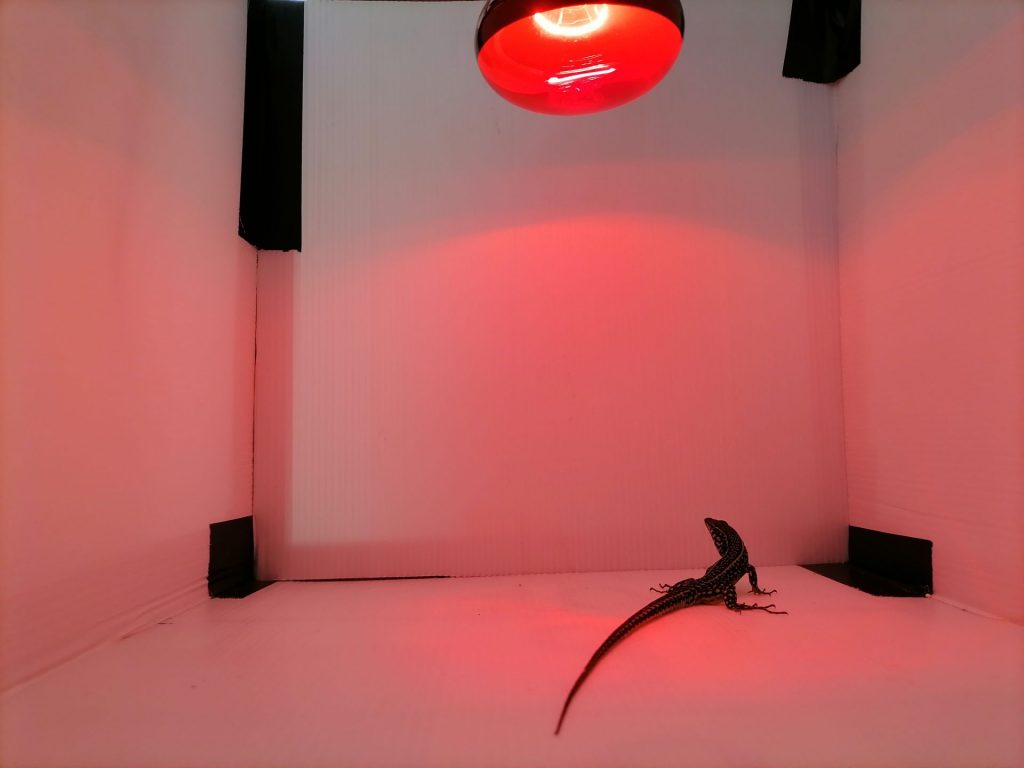Evolution and adaptations to global changes
Present-day biodiversity derives from the complex interaction between biogeographic, demographic and evolutionary processes, and recent processes in the context of global changes. We aim to understand how these processes have shaped past and current patterns of genetic and phenotypic variation within and between animal populations (reptiles, amphibians, invertebrates). Our research activities combine genomics approaches, field assessment, phenotypic experiments, and ecological modelling to improve our understanding of biodiversity patterns and of the impact of future environmental changes.
Phylogeography and demographic history – We use current patterns of genetic variability to infer past population history. We examine the timing and mode of colonization processes using population genomics and demographic inference, with a particular interest in the evolutionary dynamics of biological invasions and island colonisations. We are also applying similar approaches to evaluate the impact of past changes in climate and species distribution, and of present-day species habitat suitability or habitat fragmentation on genetic diversity.
Adaptation to environments – We detect the signature of adaptive changes in populations’ traits and genomes. This includes the assessment of rapid changes in newly colonised environments (niche shifts, experimental introductions, biological invasions), parallel evolution along replicated altitudinal gradients across multiple islands, and adaptive response of populations along climate gradients or urbanization gradients across several cities in lizards of the genus Podarcis. We also study phenotypic adaptations to specialistic niches (subterranean environments) in amphibians and cave invertebrates.
Climate-induced vulnerability of endemic species – The gene-climate relationship under present-day environments allow to identify local adaptations that are expected to better persist under climate change scenarios (genomic offset predictions). We aim to refine these predictions by accounting for the potential impact of inbreeding and thermal tolerance, using estimates of genetic diversity and measures of individual performance. To assess the impact of dispersal limitation related to population isolation, we focus on island endemic species.

People
Projects
Publications
- Berrilli, E., Gambioli, B., Bombi, P., Garzia, M., Muraro, M., Pardo, C., Reale, M., Sherpa, S., Ficetola, G. F., Vignoli, L., & Salvi, D. (2024). Subspecies inflation hampers conservation efforts: A case study on wall lizards. Biological Journal of the Linnean Society, 2. https://doi.org/10.1093/biolinnean/blae001
- Sherpa, S., Salvi, D., Silva‐rocha, I., Capblancq, T., Paris, J. R., Carretero, M. A., & Ficetola, G. F. (2024). Reconstructing the complex colonisation histories of lizards across Mediterranean archipelagos. Journal of Biogeography, 51(2), 151–172. https://doi.org/10.1111/jbi.14739
- Sherpa, S., Paris, J. R., Silva-Rocha, I., Di Canio, V., Carretero, M. A., Ficetola, G. F., & Salvi, D. (2023). Genetic depletion does not prevent rapid evolution in island-introduced lizards. Ecology and Evolution, 13(11), e10721. https://doi.org/10.1002/ece3.10721
- Muraro, M., Sherpa, S., Barzaghi, B., Bombi, P., Borgatti, D., Di Canio, V., Dalpasso, A., Falaschi, M., Gambioli, B., Manenti, R., Marta, S., Momigliano, P., Nanni, V., Pardo, C., Lo Parrino, E., Scali, S., Storniolo, F., Vignoli, L., Zuffi, M. A. L., … Ficetola, G. F. (2022). Condition- and context-dependent variation of sexual dimorphism across lizard populations at different spatial scales. Scientific Reports, 12, 16969. https://doi.org/10.1038/s41598-022-21358-2